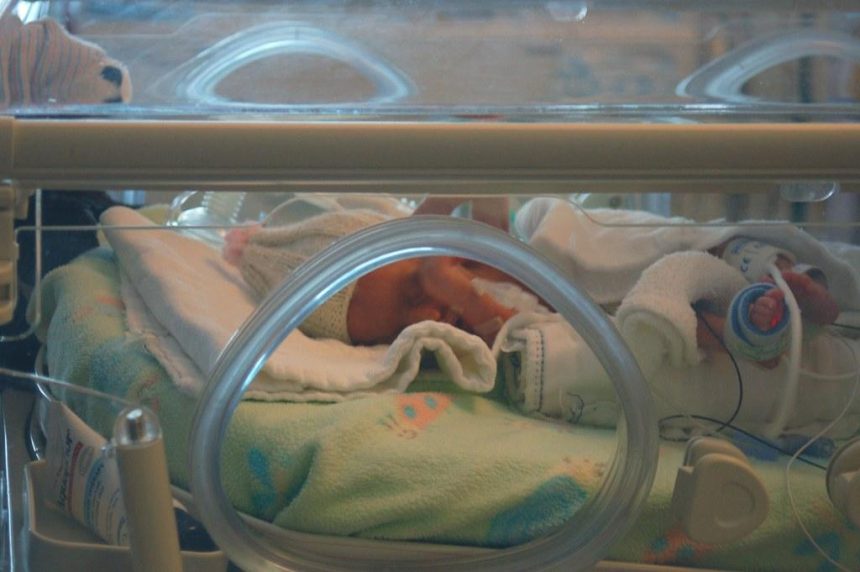In the realm of human development, the journey of a premature baby is both extraordinary and complex, a tapestry woven with threads of resilience and promise. As the neonatal unit becomes a microcosm of hope and healing, questions arise about the implications of early birth on cognitive abilities. Are these tiny warriors, who enter the world ahead of schedule, destined to exhibit heightened intelligence, or do they face unique developmental challenges that shape their learning trajectories? In this exploration, we delve into the multifaceted insights surrounding premature infants and their cognitive development, seeking to unravel the mysteries of their early experiences and the factors that contribute to their long-term brain health. Join us as we uncover the truth behind the notion that being born too soon might offer more than just a fight for survival; it may also herald a unique path toward intellectual growth.
Exploring Cognitive Development in Premature Infants
Understanding how premature infants develop cognitively is crucial for redefining perceptions of their potential. Research indicates that while premature babies often face challenges, many exhibit remarkable cognitive abilities as they grow. Early exposure to sensory stimuli and interactions can enhance neural pathways, potentially leading to advanced problem-solving skills and innovative thinking. Key factors influencing cognitive development in these infants include:
- Parental Interaction: The quality and quantity of parental involvement significantly impacts cognitive growth.
- Environmental Stimulation: Engaging, enriching environments support brain development.
- Health Interventions: Timely medical care and therapeutic practices can mitigate developmental delays.
Despite initial hurdles, studies suggest that many premature infants catch up to their full-term counterparts in cognitive abilities over time. However, some may still require additional support to thrive academically and socially. A closer examination reveals different cognitive trajectories among these children, influenced by factors such as:
- Birth Weight: Lower birth weight may correlate with a higher likelihood of developmental challenges.
- Gestational Age: The number of weeks spent in utero plays a vital role in cognitive outcomes.
- Early Interventions: Access to early educational programs can foster resilience and adaptability.
The Role of Early Intervention in Shaping Intelligence
The concept of early intervention encompasses a variety of strategies designed to support and enhance the developmental trajectories of premature babies. Research indicates that timely and targeted approaches can significantly influence cognitive, social, and emotional growth. Some essential methods include:
- Therapeutic Support: Programs like occupational and speech therapy that focus on developing essential skills.
- Parental Involvement: Guiding parents in nurturing their baby’s development through bonding and interaction.
- Environmental Enrichment: Creating stimulating surroundings that encourage exploration and learning.
Studies show that babies who receive early intervention often demonstrate improved outcomes in intelligence and learning capabilities. Monitoring developmental milestones is crucial, as demonstrated in the table below:
| Developmental Milestone | Typical Age for Full-term Babies | Typical Age for Premature Babies |
|---|---|---|
| Smiling Responsively | 6-8 weeks | 8-10 weeks |
| Reaching for Objects | 4 months | 5-6 months |
| First Words | 12 months | 14-16 months |
These figures highlight the importance of understanding adjusted developmental timelines for premature babies. Targeted interventions not only alleviate some delays but also empower these children to reach their full potential, suggesting that with the right support, they can indeed excel intellectually.
Recognizing Strengths: Unique Skills of Premature Babies
The journey of a premature baby is often filled with challenges, but it is essential to recognize the unique strengths they possess, which can manifest as remarkable skills. Research indicates that these infants may exhibit enhanced attributes, such as:
- Heightened Sensory Perception: Premature babies may be more attuned to their surroundings, showing advanced responses to stimuli.
- Adaptive Resilience: Many demonstrate an impressive ability to adapt to new environments, which can lead to quicker recovery and growth.
- Strong Social Bonding: Despite early separations, they often develop robust connections with caregivers, showcasing emotional intelligence.
Additionally, some studies suggest these infants might possess advanced cognitive processing abilities. A table illustrating some of these cognitive advantages is below:
| Skill | Overview |
|---|---|
| Problem-Solving | Ability to navigate complex situations from an early age. |
| Memory Retention | Enhanced capacity for retaining information, contributing to learning. |
| Attention to Detail | A sharper focus on their environment can lead to greater observational skills. |
Navigating Parenting Strategies for Optimal Growth and Learning
When exploring the cognitive and developmental trajectories of premature infants, it’s essential to understand the multifaceted nature of their growth. Research suggests that while early gestational birth can present challenges, many premature babies exhibit remarkable resilience and adaptability. Factors such as timely medical interventions, enriched environments, and supportive parenting strategies play a crucial role in shaping their developmental outcomes. Observing these infants, we often find that they may possess unique strengths, which can contribute to above-average learning capacities in certain areas, particularly as they mature.
To harness the potential of premature babies, consider employing strategies that foster their cognitive and emotional development. Here are some recommendations for nurturing their growth:
- Engagement: Regular eye contact, gentle touch, and responsive interactions can boost their cognitive skills.
- Stimulation: Provide sensory-rich experiences that cater to sight, sound, and touch to enhance learning.
- Consistency: Establish a routine to create a sense of security and predictability, aiding their adjustment.
- Nutrition: Ensure a balanced diet rich in essential nutrients for optimal brain health.
- Support Networks: Engage with healthcare professionals and parent support groups to share insights and resources.
Q&A
Q&A: Are Premature Babies Smarter? Understanding Developmental Insights
Q1: What does the term “premature babies” refer to?
A1: Premature babies, or preemies, are infants born before the 37th week of pregnancy. Since a full-term pregnancy typically lasts around 40 weeks, these little ones arrive earlier than expected, which can impact their development in various ways.
Q2: Is there a correlation between being born prematurely and intelligence later in life?
A2: The relationship between being born prematurely and future intelligence isn’t straightforward. Some studies suggest that premature infants may experience developmental challenges, particularly in their early years. However, they also display remarkable resilience and adaptability, leading to a broad spectrum of outcomes in cognitive abilities as they grow.
Q3: Are there specific developmental advantages that premature babies may possess?
A3: Interestingly, some research indicates that premature babies may develop unique strengths, such as enhanced problem-solving skills and creativity. Their early encounters with medical care and supportive intervention may help them develop resilience and tenacity. Nevertheless, these advantages can vary greatly from one individual to another.
Q4: What factors influence the development of premature babies’ cognitive abilities?
A4: Cognitive abilities in premature infants are shaped by a combination of factors, including the degree of prematurity, the quality of medical care received, early social interactions, and the family environment. Positive influences, such as nurturing parenting and early educational interventions, can significantly enhance their developmental outcomes.
Q5: How does environmental support factor into the cognitive development of preemies?
A5: Environment plays a critical role in shaping the developmental trajectories of premature babies. Supportive environments that include emotional bonding, stimulating activities, and educational resources can help bridge any cognitive gaps. The contributions of caregivers, family, and early childhood education programs can foster important skills that empower preemies as they grow.
Q6: Are there any myths surrounding premature babies and intelligence?
A6: Yes, several myths exist, such as the belief that all premature babies will struggle with learning or that they will inherently be less intelligent than their full-term peers. While it’s true that some may face challenges, many preemies thrive academically and socially. Individual outcomes can vary widely, and it’s essential to approach every child’s potential holistically.
Q7: What should parents of premature babies keep in mind regarding their child’s development?
A7: Parents should be encouraged to focus on their child’s unique journey and celebrate small milestones rather than comparing them to others. It’s important to seek regular developmental assessments and utilize early intervention services if needed. With the right support systems in place, many premature babies can flourish, showcasing their own distinct abilities and intelligence.
Q8: How can research help us better understand the cognitive development of premature babies?
A8: Ongoing research continues to explore the complexities of cognitive development in premature infants, examining various factors such as genetics, environment, and healthcare interventions. Understanding these dynamics can lead to improved care strategies, early intervention programs, and support systems tailored to promote the best possible outcomes for these children and their families.
Q9: What future research directions are important for this field?
A9: Future research may focus on long-term cognitive outcomes, the impact of technology and early education methods, and the role of family dynamics in nurturing intelligence among preemies. Furthermore, studying the neurological development of preterm infants can uncover the mechanisms that underlie their cognitive abilities and inform better care practices.
This Q&A aims to shed light on the complexities surrounding the cognitive development of premature babies while dispelling myths and encouraging a supportive understanding for parents and caregivers.
Closing Remarks
In exploring the intriguing question of whether premature babies possess greater intellectual potential, we embark on a journey that transcends mere statistics and research. We’ve peeled back the layers of developmental insights, revealing a complex tapestry woven with the threads of biology, environment, and early intervention. While some studies suggest that premature infants may exhibit unique cognitive traits as they grow, it is essential to remember that intelligence is a multifaceted construct influenced by a myriad of factors beyond gestational age.
As we wrap up our exploration, it is clear that the discourse surrounding prematurity and intelligence is far from binary. Each child, regardless of their journey into this world, carries a distinct set of abilities and challenges. Whether it is the resilience honed through early adversity or the support systems established by caregivers and educators, the narrative is one of individuality and possibility.
rather than framing the conversation around the comparative intelligence of premature versus full-term infants, we should celebrate the incredible potential inherent in every child. Through understanding and support, we can nurture their unique paths toward growth and achievement, ensuring they thrive, not just in the realm of intellect but in all aspects of life. As we venture forward, let us continue to advocate for research, support, and awareness, paving the way for brighter futures for all children, no matter their beginnings.


